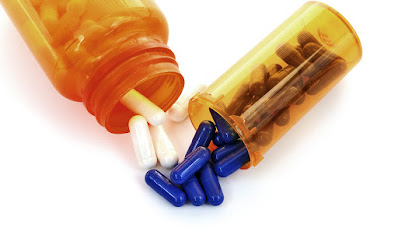A VIRUS ‘COCKTAIL’ COULD ONE DAY TREAT FOOD POISONING
In a substitute small intestinal microbiome, a mixed drink of infections effectively targeted and eliminated E. coli without hurting its microbial next-door neighbors.
The study shows that this approach is as effective in killing the targeted E. coli as broad-spectrum prescription anti-biotics but has a lot gentler effect on the normal, and often beneficial, microflora.
The experiment underlines the potential of using bacteriophages for target-specific control of complex microbial neighborhoods and possibly changing or supplementing use of prescription anti-biotics as restorative representative versus microbial illness.
startegi untuk menang judi bola online
Phages, or bacteriophages, are infections that attack germs. The classic lytic phage assaults germs by connecting to the surface of the germs and infusing its hereditary material right into the germs. It takes control of the bacterium's metabolic process and reroutes it to produce new infections. The microbial cell, currently taken hostage, will explode and send out a great deal of new phages right into the bordering location, which can after that attack new germs.
ANTIBIOTICS VS. THIS VIRUS ‘COCKTAIL'
Imagine that you have become sick because you have consumed some food that included pathogenic germs. You maintain going to the bathroom and you might also toss up. You most likely to the doctor and receive broad-spectrum prescription anti-biotics, which—in enhancement to killing the bad germs in your intestinal flora—carpet bomb the complex community of commensal germs that form a healthy and balanced intestinal flora.
This new research from the food scientific research division at the College of Copenhagen recommends that, in the not-too-distant future, it may be feasible to drink a mixed drink of careful infections (bacteriophages) that travel straight right into the digestive tract and eliminate the disease-causing germs, so you obtain better—without prescription anti-biotics and without hurting the beneficial commensal intestinal germs.
The scientists have come an action better to this situation.
"The research shows that we have a chance to eliminate specific germs without civilian casualties to the various other, and or else healthy and balanced, intestinal flora," says teacher Dennis Sandris Nielsen.
He highlights that the searchings for, released in Digestive tract Microorganisms, arise from a design of the small intestine; the next step will be to test the study on mice and in the future people.
IN THE SMALL INTESTINE
The model where the research occurred, TSI, is the work of postdoctoral scientist Tomasz Cieplak, about his PhD project.
"The uniqueness of the TSI model is that it mimics the presence of the small intestinal microbiota, which has mostly been overlooked in various other models of the small intestinal tract," says Cieplak. "Various other models current on the marketplace mimic just the simply biophysical processes, such as bile salts and digestive enzymes or pH, but here we consisted of this important aspect of human digestive tract physiology to imitate the small intestinal tract more closely."
The structure of the intestinal flora in the model is agent of how the intestinal flora could search in a healthy and balanced individual. In the study, scientists included E. coli germs to the intestinal flora, which they after that tried to eliminate with a targeted mixed drink of infections (bacteriophages) developed by the company Intralytix.
"Using bacteriophages to eliminate pathogenic germs isn't new and has actually been used to treat food-borne diseases and various other illness in Eastern Europe for almost a century, but it wasn't until fairly recently that this approach began to draw in more extensive research rate of passion," says Nielsen.
The research right into combating contagious illness with infections did not have appeal because of the presence of effective therapy with prescription anti-biotics.



